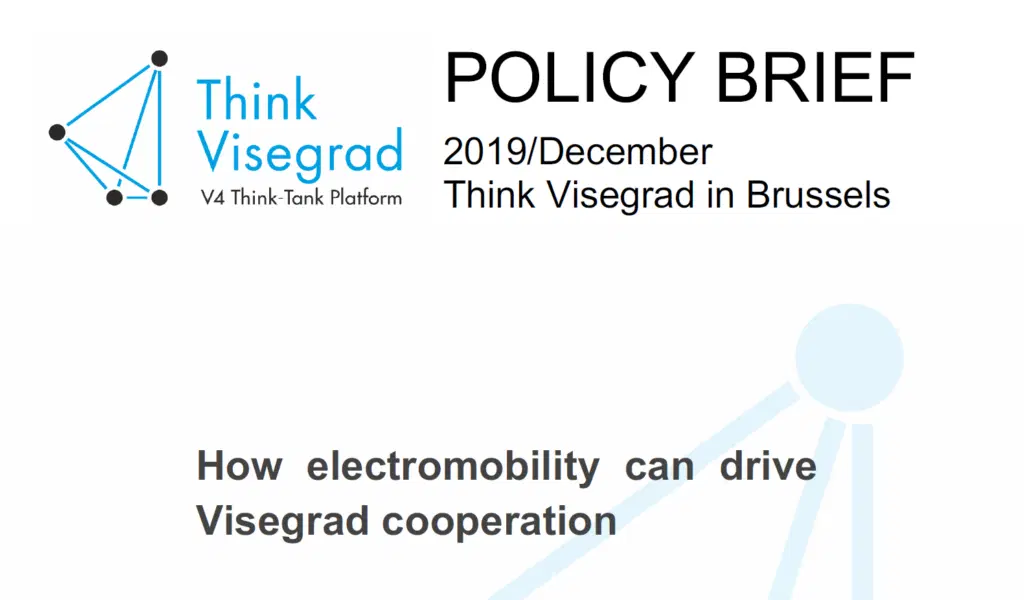How electromobility can drive Visegrad cooperation

- EU’s ambitious climate policy will impact all industry sectors, including transport, and electric vehicles will play a central role in decarbonizing it.
- These changes should be considered by the V4 – countries with strong automotive industry and 13% of EU’s registered passenger cars.
- While the development of electromobility will be challenging, if included properly in V4 agenda, it might fuel cooperation and be used in V4’s foreign policy.
The V4 is not the frontrunner in limiting transport emissions. While the total GHG emission by Czechia, Hungary and Slovakia decreased by 13-16% between 2005 and 2017 (for Poland it remained at roughly the same level; EU’s average: 16%), emissions in road transport actually increased: in Czechia: 8%; Hungary: 10%; Poland: 77%; Slovakia: 16%. The V4also tops the EU when it comes to pollution caused by new cars. In 2018, the V4 average was 127.4 g, while EU’s was 120.6. The trend is associated with the rise of petroleum car sales. The relatively old age of passenger cars is another factor. In 2018, the average age of passenger cars in Czechia was 14.8; Hungary 14.2; 13.9 in Poland and Slovakia. However, the V4 members do aim to develop e-mobility, which is reflected in their strategic documents.
Celou publikaci si můžete zobrazit a stáhnout zde nebo pomocí tlačítka PDF napravo od tohoto článku.





